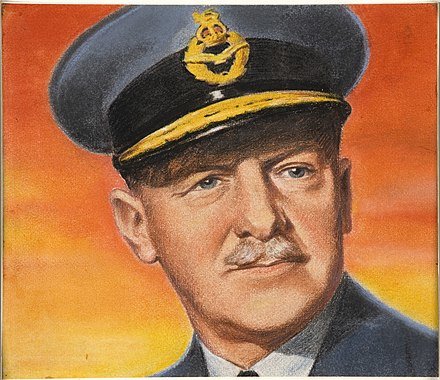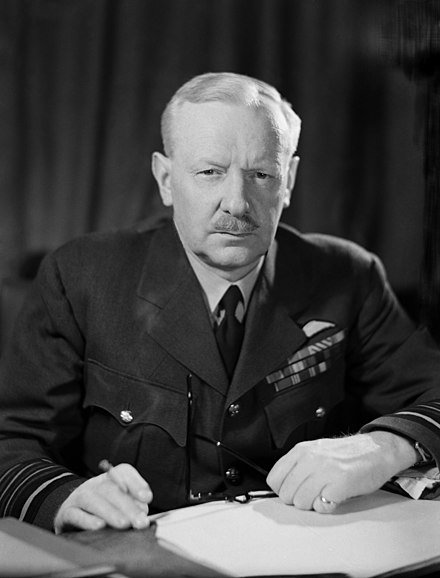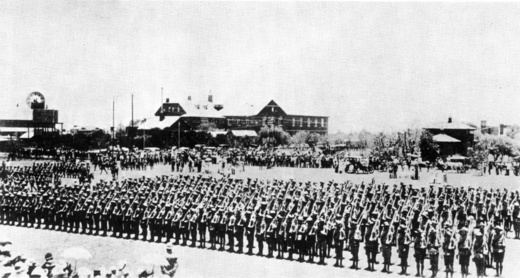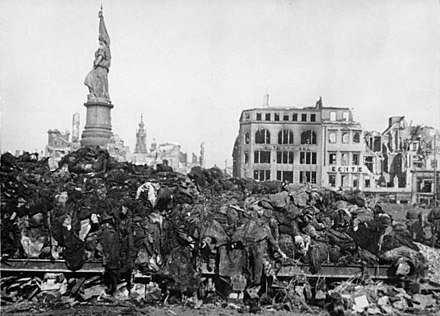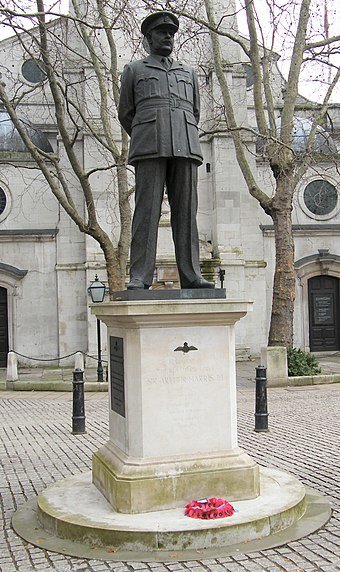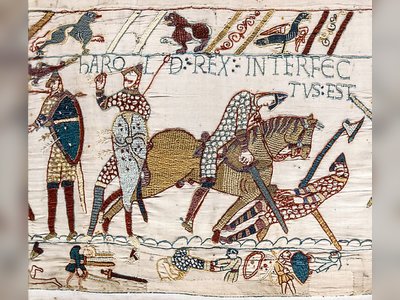British Heritage
Remember, Cherish, Learn.
beta
Sir Arthur Harris, 1st Baronet
Contribution of Sir Arthur Harris, 1st Baronet, to British Heritage.
Sir Arthur Travers Harris, 1st Baronet, made significant contributions to British heritage as the Air Officer Commanding-in-Chief (AOC-in-C) of RAF Bomber Command during the height of the Anglo-American strategic bombing campaign against Nazi Germany in the Second World War. Commonly known as "Bomber" Harris, he played a crucial role in shaping the bombing strategy and tactics employed by the British forces during the war. His leadership and determination had a profound impact on the course of the conflict and the eventual Allied victory. However, his legacy remains controversial due to the large number of civilian casualties and destruction caused by the area bombing strategy he championed.
Arthur Harris was born on 13 April 1892, in Cheltenham, Gloucestershire, England. Growing up with a sense of wanderlust and without a strong sense of belonging, Harris embarked on a journey to Rhodesia (now Zimbabwe) at the age of 17, seeking new adventures. He took part in the First World War, serving in the 1st Rhodesia Regiment and gaining experience in South Africa and South West Africa. In 1915, he joined the Royal Flying Corps and became a skilled aviator, eventually rising to the rank of major by the war's end.
After the First World War, Harris continued his career in the newly formed Royal Air Force (RAF). He served in various capacities in India, Mesopotamia, and Persia, contributing to the development of bombing techniques and tactics. During the 1920s and 1930s, Harris expressed a desire to return to Rhodesia, but his commitment to his growing family and his responsibilities in the RAF led him to remain in the service.
In 1939, at the outbreak of the Second World War, Harris took command of No. 5 Group RAF and later became the head of Bomber Command in February 1942. Under his leadership, the British Cabinet approved the "area bombing" strategy, which involved targeting German cities with massive aerial bombardment. Harris supported the development of tactics and technology to carry out the area bombing effectively.
Harris's preference for area bombing over precision targeting became highly controversial. Many Allied air commanders disagreed with his approach, arguing that it was less effective and led to a significant number of civilian casualties. The bombing of German cities, including the notorious bombing of Dresden, sparked intense debates about the morality and effectiveness of the strategy.
Despite the controversies, Harris's strategic bombing campaign played a role in weakening German infrastructure and demoralizing the civilian population. Some historians argue that the bombing campaign forced Germany to divert valuable resources to air defense and repair efforts, impacting their overall war effort.
After the war, Harris received several honors and awards for his service, including promotions to Marshal of the Royal Air Force and a baronetcy. He retired in 1946 and moved to South Africa, where he managed the South African Marine Corporation. Despite the success of his bombing campaign, Harris faced criticism for the destruction caused and was denied a peerage in protest. He remained steadfast in his belief that area bombing was justified to bring a swift end to the war.
Sir Arthur Harris, 1st Baronet, made a significant impact on British heritage through his leadership of RAF Bomber Command during the Second World War. While his area bombing strategy remains controversial, his contributions to the war effort and his determination to achieve victory are part of the complex history of the conflict. His legacy continues to be debated among historians and the public, but his leadership and role in shaping strategic bombing in the war are undeniable.
Early Life and Military Career
Arthur Harris was born on 13 April 1892, in Cheltenham, Gloucestershire, England. Growing up with a sense of wanderlust and without a strong sense of belonging, Harris embarked on a journey to Rhodesia (now Zimbabwe) at the age of 17, seeking new adventures. He took part in the First World War, serving in the 1st Rhodesia Regiment and gaining experience in South Africa and South West Africa. In 1915, he joined the Royal Flying Corps and became a skilled aviator, eventually rising to the rank of major by the war's end.
Inter-War Years
After the First World War, Harris continued his career in the newly formed Royal Air Force (RAF). He served in various capacities in India, Mesopotamia, and Persia, contributing to the development of bombing techniques and tactics. During the 1920s and 1930s, Harris expressed a desire to return to Rhodesia, but his commitment to his growing family and his responsibilities in the RAF led him to remain in the service.
Command of RAF Bomber Command
In 1939, at the outbreak of the Second World War, Harris took command of No. 5 Group RAF and later became the head of Bomber Command in February 1942. Under his leadership, the British Cabinet approved the "area bombing" strategy, which involved targeting German cities with massive aerial bombardment. Harris supported the development of tactics and technology to carry out the area bombing effectively.
Area Bombing Controversy
Harris's preference for area bombing over precision targeting became highly controversial. Many Allied air commanders disagreed with his approach, arguing that it was less effective and led to a significant number of civilian casualties. The bombing of German cities, including the notorious bombing of Dresden, sparked intense debates about the morality and effectiveness of the strategy.
Contributions to Allied Victory
Despite the controversies, Harris's strategic bombing campaign played a role in weakening German infrastructure and demoralizing the civilian population. Some historians argue that the bombing campaign forced Germany to divert valuable resources to air defense and repair efforts, impacting their overall war effort.
Post-War Era and Legacy
After the war, Harris received several honors and awards for his service, including promotions to Marshal of the Royal Air Force and a baronetcy. He retired in 1946 and moved to South Africa, where he managed the South African Marine Corporation. Despite the success of his bombing campaign, Harris faced criticism for the destruction caused and was denied a peerage in protest. He remained steadfast in his belief that area bombing was justified to bring a swift end to the war.
Conclusion
Sir Arthur Harris, 1st Baronet, made a significant impact on British heritage through his leadership of RAF Bomber Command during the Second World War. While his area bombing strategy remains controversial, his contributions to the war effort and his determination to achieve victory are part of the complex history of the conflict. His legacy continues to be debated among historians and the public, but his leadership and role in shaping strategic bombing in the war are undeniable.
- Sir Arthur Harris, 1st Baroneten.wikipedia.org
